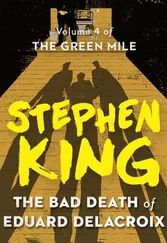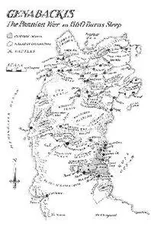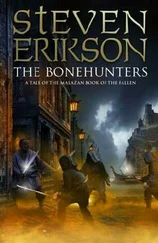Steven Erikson - The healthy dead
Здесь есть возможность читать онлайн «Steven Erikson - The healthy dead» весь текст электронной книги совершенно бесплатно (целиком полную версию без сокращений). В некоторых случаях можно слушать аудио, скачать через торрент в формате fb2 и присутствует краткое содержание. Жанр: Фэнтези, на английском языке. Описание произведения, (предисловие) а так же отзывы посетителей доступны на портале библиотеки ЛибКат.
- Название:The healthy dead
- Автор:
- Жанр:
- Год:неизвестен
- ISBN:нет данных
- Рейтинг книги:3 / 5. Голосов: 1
-
Избранное:Добавить в избранное
- Отзывы:
-
Ваша оценка:
- 60
- 1
- 2
- 3
- 4
- 5
The healthy dead: краткое содержание, описание и аннотация
Предлагаем к чтению аннотацию, описание, краткое содержание или предисловие (зависит от того, что написал сам автор книги «The healthy dead»). Если вы не нашли необходимую информацию о книге — напишите в комментариях, мы постараемся отыскать её.
The healthy dead — читать онлайн бесплатно полную книгу (весь текст) целиком
Ниже представлен текст книги, разбитый по страницам. Система сохранения места последней прочитанной страницы, позволяет с удобством читать онлайн бесплатно книгу «The healthy dead», без необходимости каждый раз заново искать на чём Вы остановились. Поставьте закладку, и сможете в любой момент перейти на страницу, на которой закончили чтение.
Интервал:
Закладка:
Steven Erikson
The healthy dead
Those who die healthily are stuffed and displayed in glass-cased shrines as examples of good living.
Imid Factallo, foreman of the work crew relaying the cobbles round back of the Wall, was struck unconscious by a collapsing wagon, and so became a saint. His fellow workers, their faces smeared in dust, stared down upon him in wonder as he blinked open his eyes. The sky behind those mundane visages looked indeed the resplendent residence of the Lady of Beneficence, the Goddess of Wellness, into whose finely boned arms Imid Factallo felt himself on the verge of falling. If, of course, one could indeed fall upward, plunging clear of the heavy, laden earth, and dive with keening joy into the vast blueness overhead.
But the glorious ascent never arrived. Instead, runners had set out to the Grand Temple and were now returning, this time leading worthies, their pink shirts and pantaloons bound at the joints, arms and legs filled out with padding to infer to any and all onlookers the musculature of vigorous health, their drawn faces painted in flushed tones. And joining them, three Well Knights, white-cloaked and clanking in the highly polished, silver-etched armour of their exalted rank-and Imid saw, foremost among these three, none other than Invett Loath, Purest of the Paladins, who needed no rouge to colour his square-jawed, large-nosed face, which was very nearly purple, so thoroughly blooded the veins and arteries beneath the only-so-slightly spotty skin. Imid knew as well as any other citizen that one might, upon seeing Knight Invett Loath for the first time, assume the very worst-that the Paladin was far too fond of ale, wine and the other forbidden vices of slovenly living-but this was not the case. Invett Loath could not be preeminent among the Knights were he such a fallen soul. In fact, nothing untoward had passed his lips his entire life. At least inward.
“You, sir,” he now rumbled, glaring down from beneath the rim of his blindingly sunlit helm, “are the unworthy leach of the salt marshes they call Imid Factallo? Has your skull cracked entirely open, then? Are you now mute as well as dumb? The Goddess abides both the physically and the mentally inept, you will be pleased to know, sir. Thus leaving you twice, if not thrice blessed. It is a distinction to ponder, is it not? Yet I see your eyes dart, suggesting that sight has not left you. Twice, then, as I first surmised. Well, Imid Factallo, once foreman of the Wall’s Third Reach road-tossers, you will now be honoured to know that, by your fated accident which has spilled your blood so messily onto your face and the stones beneath you, I now pronounce you a Saint of the Lady.”
Imid Factallo stared up at the Knight, then, squeezing shut his eyes, he groaned and wished, with all his heart, that the damned wagon had killed him.
“The Trader Called The City Quaint,” Emancipor Reese said, squinting at the distant high walls with their strange banners dangling limp two-thirds of the way up. The battered wagon beneath the two men pitched wildly on the rocky path.
“Well,” Bauchelain sighed beside him, “there is little I see to support that observation.”
“No, Master, it is actually called Quaint, the last and most remote of the city-states on this peninsula. And, given that we’ve seen naught of even so much as a hamlet in the past six days, I would agree with the trader that it is indeed remote.”
“Perhaps,” the sorceror conceded, pulling at his pointed beard. “Nonetheless, the only quality I can discern from this distance that might be construed as quaint is that tidy row of corpses spiked to the inland wall.”
Emancipor narrowed his gaze even further. Not banners, then, dangling so limp. “And you call that quaint, Master?”
“Yes, I do, Mister Reese. Korbal Broach will be pleased, don’t you think?”
The manservant leaned back on the wagon’s buckboard, easing the knots in his lower back. “I would hazard, Master,” he offered, “that the city’s authorities would not look kindly upon the theft of their… uh, decorations.”
“I imagine you are correct,” Bauchelain murmured, his high brow wrinkling in thought. “More alarming, perhaps, is the notion that our recent escapades in the previous city might have preceded our mortal selves.”
Emancipor Reese shivered and clutched tighter the traces in his gnarled hands. “I sincerely hope otherwise, Master.”
“Perhaps, this time, we ought not to risk it. What do you say, Mister Reese? Circumvent the city. Find ourselves an outlying village and purchase a worthy seacraft, and so make our way across the bay?”
“Excellent idea, Master.”
The road had been empty of passersby during the course of their conversation, and the dust trailing the wake of the trader who had been heading the other way was already settling on the treetops visible beyond the road’s crumbly edge. As if to challenge Bauchelain’s decision, however, there came the sound of boots scrabbling up the track towards them, and a moment later two figures climbed into view. A man and a woman, carrying between them a small but clearly heavy chest.
In this world of virtues, the third and most reviled demon, Vice, knew loneliness, despair and misery. Which wasn’t right, all things considered. Of the three emotional states previously mentioned, Ineb Cough was well-acquainted with the latter two. Despair and misery, but they were what he delivered unto others. To suffer beneath identical torment as those who succumbed to his lures was unconscionable. Well, perhaps that was the wrong word to use, but the sentiment fit.
Which was more than could be said of the foppish dancer’s clothes he was presently wearing, clothes that clearly had belonged to a much taller, wider-shouldered individual. It was a sad truth, he reflected as he poked through the rubbish in the alley behind The Palace of Earthy Delights looking for… something, anything. A sad truth, that the arts of the flesh could not but surrender to decrepitude, eventually. That talent and prowess gave way to aching muscles and brittle bones. The world had no place for aged artists, and that brutal fact could not have been made more evident than with the demon’s discovery of the dead dancer. His wrinkled face staring sightless up at the sky, the expression revealing faint surprise, perhaps even outrage, to announce the final realisation that, bent and old as he’d become, he could no longer perform that particular move. That, indeed, the loud crack that had no doubt accompanied that final spin and twirl was unquestionably a bad thing.
The demon doubted that there had been an audience. Another sordid fact of aged artists-no one watched, no one cared. Spin, twirl, snap, sprawling onto the grubby cobblestones, there to lie undisturbed by any but the tiny eaters of the flesh that dwelt within a living body and would only now come out to feed.
Vice had always been the retreat of artists. When naught else remained, there was always drink. Dubious carnal appetites. An excess of indulgences served on overflowing plates. The host of delectable death-wishes to sample among the myriad substances that were offered. Or, had been offered. Back in the good old days.
But now, in Quaint, virtues ruled, righteous and supreme. And people danced in the streets. Well, some people did, or tried to, only to die trying. Likely a final flourish. There were plenty of those these days. To live clean, to live with unobstructed vigour. To die slow. To die sudden. But always to die, alas. The demon, who might well have wished to die, could not. He persisted, in the manner of hidden desires, and so was witness to the unchanging realities of these sad mortals. Ducking and dodging the inevitable awakening of those tiny eaters of flesh. In the end… was the end, and only the end. Poor sods.
Читать дальшеИнтервал:
Закладка:
Похожие книги на «The healthy dead»
Представляем Вашему вниманию похожие книги на «The healthy dead» списком для выбора. Мы отобрали схожую по названию и смыслу литературу в надежде предоставить читателям больше вариантов отыскать новые, интересные, ещё непрочитанные произведения.
Обсуждение, отзывы о книге «The healthy dead» и просто собственные мнения читателей. Оставьте ваши комментарии, напишите, что Вы думаете о произведении, его смысле или главных героях. Укажите что конкретно понравилось, а что нет, и почему Вы так считаете.












